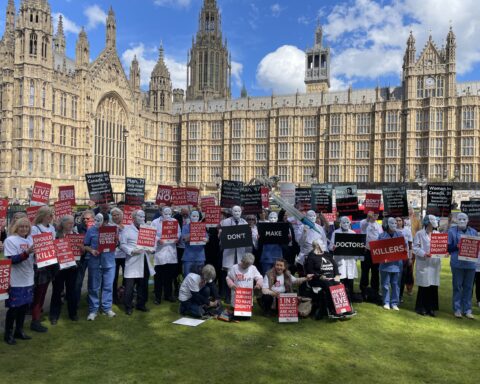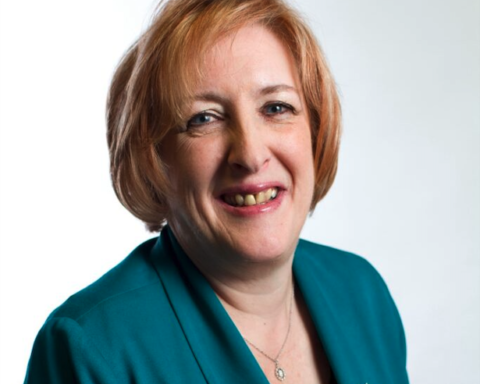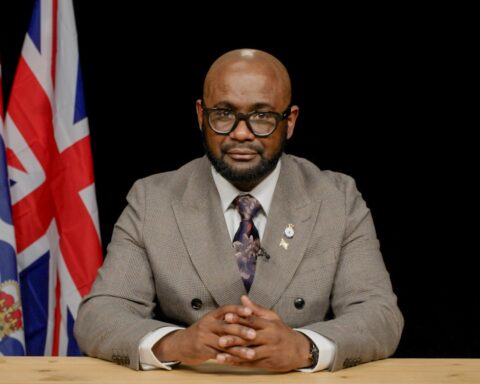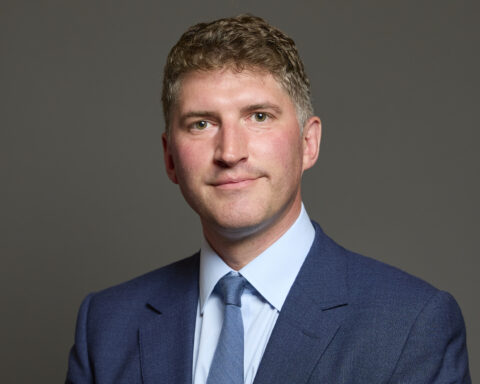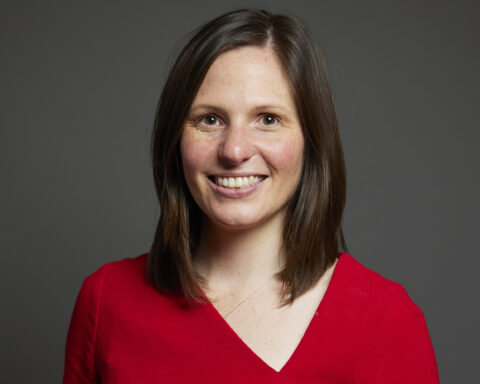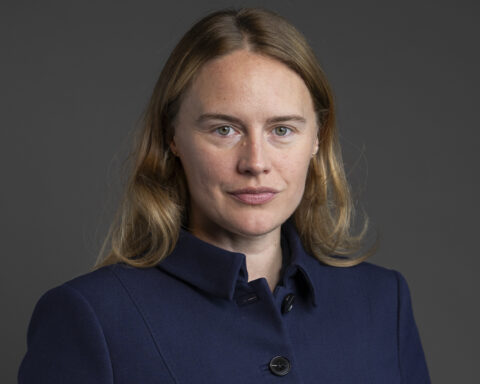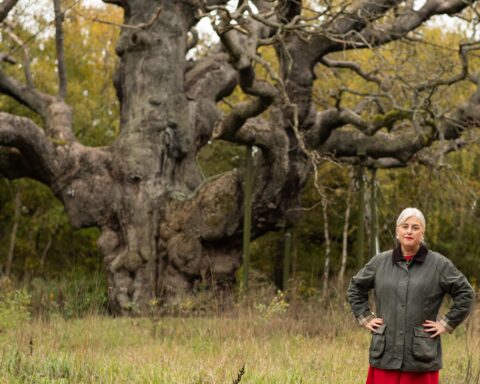William Jefferson Hague News
William Jefferson Hague
Sue-Ellen Cassiana Braverman, known as Suella Braverman, is a British Conservative Party politician and barrister. She has been the Member of Parliament for Fareham since 2015 and served twice as Home Secretary. Braverman is known for her strong stance on immigration, law and order, national security, and promoting conservative social values.
Latest News
More News
Opinion
More News
Washington, February 15, 2026 — According to Parliament News, that A newly issued US foreign policy statement from Washington has clarified that
MoreMOSCOW, Russia, February 14, 2026 — According to Parliament News, that Political repression categ has become a central theme in domestic and
MoreBEIRUT, Lebanon, February 14, 2026 — According to Parliament News, that Beirut political developments entered a decisive phase in 2026 Lebanon after
MoreThe Independent Water Commission Final Report, and the Government’s subsequent Water White Paper offers a once-in-a-generation opportunity to address the issues in
MoreIslamabad, Pakistan — February 13, 2026 — Parliament News — The issue of Imran Khan Vision Loss has intensified national debate after
MoreLast week, I sponsored a debate in Westminster Hall on the impact of armed conflict on children. MPs from across the House
MoreDhaka, Bangladesh — February 13, 2026 — Parliament News — The Bangladesh election results 2026 announced in Dhaka on February 13, 2026
MoreThis week I secured a Westminster Hall debate on the future of the New Medium Helicopter programme. On the surface, it is
MoreAccessing essential services like healthcare or going to school and work, should be simple. Services should be close to home and public
MoreThere are few places in the world as instantly recognisable as Sherwood Forest. Mention its name almost anywhere on the planet and
MoreWilliam Jefferson Hague, Baron Hague of Richmond, PC, FRSL, born on March 26, 1961, in Rotherham, England, is a distinguished British politician and life peer. Hague served as the leader of the Conservative Party and the leader of the opposition from 1997 to 2001. From 1989 until 2015, he was a member of parliament for the Richmond, North Yorkshire, seat. Throughout his political career, he has made major contributions to public service and international affairs, as well as serving as Foreign Secretary. Hague’s approach to leadership has changed with time, demonstrating his flexibility, strategic thinking, and dedication to taking on challenging international challenges. He has been tenacious, witty, and committed to molding British politics and affecting diplomatic ties internationally throughout his career.
He succeeded John Major as Leader of the Conservative Party in 1997, at the age of 36. Tony Blair, the leader of the Labour Party, and other rivals put his leadership to the test in well-publicized debates that highlighted Hague’s humor and debating prowess. Hague’s fortitude and tenacity were apparent in the face of difficulties as he attempted to reconstruct the Conservative Party following its loss in the general election.
As Hague’s career developed, the government of Prime Minister David Cameron appointed him Foreign Secretary in May 2010. Hague oversaw important world events during his time in office, including the wars in Libya and Syria, the withdrawal from Afghanistan, and the situation in Ukraine. He interacted with foreign leaders and approached complex international challenges with pragmatism, demonstrating his diplomatic skills and strategic intelligence.
Co-founding the Prevention of Sexual Violence in Conflict program with well-known actress and activist Angelina Jolie Pitt is one of Hague’s noteworthy accomplishments. With the start of this project in May 2012, Hague demonstrated its commitment to humanitarian causes and global justice while also setting new standards for tackling sexual abuse in crisis zones. His inventive approach to international relations and diplomacy was further demonstrated by his leadership in adopting modifications to the language used in public diplomacy, emphasizing “soft power” and the connection between military capabilities and economic growth.
William Hague’s transformation from an inexperienced Conservative leader to an accomplished statesman and diplomat is a prime example of his versatility and long-lasting influence on British politics and international relations. A combination of political savvy, diplomatic skills, and a commitment to using humor, narrative, and strategic leadership to confront urgent global issues characterize his legacy.
William hague Speeches
William Hague’s first speech at the Conservative Party conference in 1977 called for a departure from the current political and economic system. At the tender age of sixteen, Hague underlined how the Conservative Party needed to evolve to meet the expectations and aspirations of the new generation of change-agents. He advocated for a culture where hard work is valued and rewarded, stressing the significance of rewarding innovation and effort. This event took place in the United Kingdom. In his address, Hague outlined his vision for a free market economy, the denationalization of companies, and less government intrusion to empower young people to own homes and capital.
In October 1977, William Hague gave a farewell speech to the Conservative Conference in Blackpool. The idea of inclusivity and togetherness within the Conservative Party was central to William Hague’s farewell speech to the Conservative Conference. He highlighted his journey from a comprehensive schoolboy to a high office as proof that privilege or connections are not necessary for success inside the party, emphasizing that the party is for everyone, whatever of their background. With his address, Hague sought to project the Conservative Party as a hospitable organization that celebrates diversity and opportunity for all of its members.
The resignation speech of William Hague was given on October 5, 2000, at the Conservative Party Conference. In his speech, Hague attacked Tony Blair’s administration, highlighting the need for substantive reform and touching on important subjects like crime and healthcare. Political change was in the air at the time of the event, as Hague resigned as leader of the Conservative Party. His speech demonstrated his dedication to Conservative principles and his hope for the nation’s future. The news release announcing his retirement focused on his noteworthy accomplishments in British politics and his choice to step down from Parliament after 26 years.
William Hague denounced the violence and casualties during the Gaza flotilla raid in June 2010. He demanded that accountability, peace, and humanitarian access to Gaza be achieved right now. Hague stressed that the UK was committed to conducting a full investigation, taking responsibility for the events, and showing compassion for the British citizens who were affected. He emphasized the necessity of a Palestinian state that can coexist with Israel and Gaza’s economic development. To properly address the crisis, the speech emphasized how urgent it is and argued for international cooperation and diplomatic efforts.
A meeting that took place in Paris on March 5, 2014, was one of William Hague’s notable events. In this discussion, Hague discussed the Budapest Memorandum and the obligations of signatories about Ukraine’s territorial integrity with U.S. Secretary of State John Kerry and Acting Foreign Minister of Ukraine Andriy Deshchytsia. Confronting Russia’s unilateral actions and reaffirming support for Ukraine’s sovereignty was the main goal of the summit. Hague’s active involvement in these talks demonstrates his dedication to upholding international accords and promoting regional peace in the face of rising tensions resulting from the conflict between Russia and Ukraine.
In his address on June 6, 2016, William Hague stressed the need for a more adaptable EU that takes into account national preferences and opt-outs. The speech was given at an event held in the UK. Former foreign secretary Hague made clear why he was against the Lisbon Treaty and why he wanted a referendum on it. His speech promoted a balanced approach to European integration, reflecting his long-standing skepticism about the EU. The occasion proved Hague’s dedication to democratic values and his conviction that preserving national interests and sovereignty while fostering ties with the European Union is essential.
Who is William hague?
On March 26, 1961, William Jefferson Hague, Baron Hague of Richmond, was born in Rotherham, Yorkshire, England. Hague, who was well-known for his work as an author, life peer, and British politician, attended Oxford University where he excelled and graduated with honors in economics, politics, and philosophy. Hague obtained experience at Shell Oil Co. and McKinsey and Co. before entering politics. His incredible journey in public service began in 1989 when he won a successful by-election in Richmond, North Yorkshire, which marked his debut in politics. Hague’s early involvement in politics, which included giving a speech at the Conservative Party convention when he was just 16 years old, predicted his rise to prominence. Hague, who was married to Ffion, has contributed significantly to humanitarian causes. During his career, Hague performed important roles as Foreign Secretary, Secretary of State for Wales, and Leader of the Conservative Party. He also fought tough oppo Ffion Jenkins (m. 1997) nets like Tony Blair. Among her noteworthy accomplishments were her political biographies of such figures as William Wilberforce and William Pitt the Younger. After leaving politics, Hague was still involved in business, charity work, and wildlife conservation. He chairs the United for Wildlife Taskforce, the Royal Foundation of The Prince and Princess of Wales, and other organizations.
William Hague’s biography is illustrated in the table below.
| Personal Information | |
| Full Name | William Jefferson Hague, Baron Hague of Richmond |
| Birthday | March 26, 1961 |
| Spouse | Ffion Jenkins (m. 1997) |
| Number of Children | no |
| Position | Prime Minister of Belgium |
| Political Party | Conservative Party |
| Education | Magdalen College, Oxford; INSEAD Business School |
| Political Career | |||
|---|---|---|---|
| Position | Term | Preceded by | Succeeded by |
| First Secretary of State | 12 May 2010 – 8 May 2015 | The Lord Mandelson | George Gideon Oliver Osborne |
| leader of the House of Commons | 14 July 2014 – 8 May 2015 | Andrew David Lansley | Christopher Stephen Grayling |
| Secretary of State for Foreign and Commonwealth Affairs | 12 May 2010 – 14 July 2014 | David Wright Miliband | Philip Hammond |
| Leader of the Opposition | 19 June 1997 – 13 September 2001 | Sir John Major | Iain Duncan Smith |
| Leader of the Conservative Party | 19 June 1997 – 13 September 2001 | Sir John Major | Iain Duncan Smith |
| Secretary of State for Walesr | 5 July 1995 – 2 May 1997 | John Redwood | Ronald Davies |
William Hague Family
Nigel and Stella Hague are the parents of William Hague. His father, Nigel Hague, was a soft drink entrepreneur and sports enthusiast, well-known for his fundraising activities, sense of humor, and dangerous acts including skydiving at the age of 83 and biplane wing-walking at the age of 87. Nigel left a legacy of charitable activity when he passed away at 90. William Hague’s mother, Stella Hague, was regarded as remarkably smart and helpful in his childhood.
When William Hague was a teenager, he delivered supplies for his father’s business to work for men’s clubs in South Yorkshire while employed at “Hague’s Soft Drinks”. He was the brother of Francis Hague and the sister of Clara, Amy, and Florence S. Hague.
Ffion Jenkins, the wife of William Hague, is a solicitor who was admitted on March 15, 2021, and who will have an annual practicing certificate starting on November 1, 2023. Jenkins served as Hague’s private secretary when they first met in 1995, while he was the Welsh Secretary. The pair got hitched in 1997 and is childless.
William Hague education
William Hague’s educational background is distinguished by a thorough academic journey with specific dates designating significant turning points. He started his education at Ripon Grammar School and Wath-upon-Dearne Comprehensive School, laying the groundwork for his future endeavors. After making the switch to a higher education, Hague studied philosophy, politics, and economics at Oxford’s Magdalen College, where he performed exceptionally well and earned a first-class honors degree in the early 1980s. During his time at college, he was quite involved in politics, holding the position of President of the Oxford University Conservative Association. To further enhance his academic background, Hague went on to obtain an MBA at the INSEAD Business School in France. His scholastic accomplishments provided the groundwork for a varied career that includes positions as a major political figure, author, and management consultant. He held several leadership posts before retiring from active politics in 2015.
William Hague’s political career
There have been several noteworthy turning points and accomplishments in William Hague’s political career. During his early political career, William Hague made an unfruitful attempt to run for the Wentworth seat in 1987. At the age of 27, he was first elected to the North Yorkshire seat of parliament for Richmond in 1989. He was re-elected five times during the years, with the biggest margin of any Conservative in the nation. Within two years of joining Parliament, Hague had risen through the ranks to become the Chancellor of the Exchequer’s Parliamentary Private Secretary. He was appointed Parliamentary Under-Secretary of State at the Department of Social Security in 1993. In 1994, he was appointed Minister of State for Social Security and Disabled Persons. Most notably, in 1995, he introduced the Disability Discrimination Act. Hague, then thirty-four, was appointed Secretary of State for Wales in the same year and has served in Britain’s cabinet since 1947. At the age of 36, he became the first major UK political party leader in 200 years when he was elected leader of the Conservative Party following the 1997 general election. Hague spearheaded the Conservative Party’s triumph in the 1999 European elections and was instrumental in opposing the United Kingdom’s entry into the European Union. Following the 2001 General Election, he announced his resignation as party leader. 2010 saw Hague lead talks with the Liberal Democrats that culminated in the establishment of the Coalition Government.
Political Party of William Hague
In 1977, William Hague became a member of the Conservative Party after making his first national appearance at the convention at the age of sixteen. Later, when the party lost the 1997 general election, he was elected leader of the Conservative Party, a position he held from June 1997 to September 2001. Hague concentrated on bringing the party together and enacting reforms while serving as leader, but he eventually quit in response to the Conservatives’ dismal showing in the general election of 2001. His decision to resign signified the end of his time as the Conservative Party’s leader.
William Hague’s election results
In the general election that took place in 2001, the Conservative Party, which was led by William Hague, was successful in winning 166 seats. A total of 26,367,383 votes were cast for the Conservative Party, which resulted in a total of 8,787 votes being cast for the party during the election. Where he was confronted with a significant loss versus the Labor Party. Hugh did not succeed in retaining the seat of Richmond (Yorks) in North Yorkshire. The Labor Party, led by Tony Blair, was able to secure a large majority in Parliament. The election dealt a significant setback to William Hague and the Conservative Party, which ultimately led to Hague resigning from his position as head of the party. The Conservative Party was dealt a challenging election outcome, while the Labor Party was able to strengthen its presence in the House of Commons by receiving a considerable number of votes.
William Hague Controversies
Hague’s core-vote strategy-based leadership style in the 2001 general election was criticized for what was seen as its limited scope. Within the political community, Hague’s election campaign approach sparked discussion and criticism. The efficacy and consequences of this strategy were questioned by detractors, who also raised issues with its narrow focus and possible influence on more general election results. Hague’s choices and the strategic course chosen for the 2001 general election highlighted the difficulties and complexities of political leadership and emphasized the value of flexibility and strategic vision in election campaigns.
William Hague’s answer and subsequent departure came under examination after the Conservative Party was defeated in the general election in 2001. This led to questions being raised about his ability to lead. Hague’s handling of the situation, notably in managing controversies and the party’s defeat, became the subject of discussion as a result of the aftermath of the election event. During a difficult time for the Conservative Party after the election, this event served as a turning point in Hague’s political career, causing discussions and debates to take place about his approach to leadership and decision-making.
William Hague’s political career was significantly impacted by the horrible sex accusations scandal. Reports that surfaced on September 1, 2010, claimed an unidentified minister had an affair with a long-term partner and a Whitehall official, sparking a public controversy. Hague’s political efforts came under scrutiny due to this scandal, which also called into question his decision to name Christopher Myers as a special adviser. To lessen the blow, Hague released a personal statement refuting any unapproved contact he may have had with Myers and addressing the allegations surrounding his marriage. But the scandal called into question his honesty and veracity, thereby damaging his standing in politics.
William Hague facts
Former Foreign Secretary and Conservative Party leader William Hague, Baron Hague of Richmond, is a famous British politician. Important William Hague facts:
- Early Life and Education: In Rotherham, Yorkshire, England, Hague was born on March 26, 1961. He rned a first-class honours degree in philosophy, politics, and economics at Oxford.
- Political Career: Hague became the youngest Conservative MP at 27. His ministerial appointments included Secretary of State for Wales and Conservative Party Leader.
- Conservative leadership: Hague led the Conservatives from 1997 to 2001. He concentrated on party reform and humanitarian policies throughout his tenure.
- Foreign Secretary: Hague became David Cameron’s Foreign Secretary after the 2010 General Election. He helped revive the Foreign and Commonwealth Office and resolve international conflicts.
- Preventing Sexual Assault Initiative: Hague and UNHCR Special Envoy Angelina Jolie created the initiative in 2012 to combat sexual assault in crisis zones.
- Author and Columnist: Hague is a successful author who wrote biographies of William Pitt the Younger and William Wilberforce. He writes Daily Telegraph columns.
- Business and Advisory Roles: Besides politics, Hague is a director of Intercontinental Exchange Inc. and chair of the Royal United Services Institute, a security and defense think-tank.
William Hague’s life
As of 2024-03-12, William Hague’s estimated net worth is $2 million or more, including his shares in Intercontinental Exchange Inc. His total compensation as the Independent Director of Intercontinental Exchange is $457,560. Furthermore, it was revealed in 2016 that he wrote a weekly column for the Daily Telegraph and received £1.3 million from speaking engagements. Hague’s varied professional background, which includes positions as a management consultant, politician, and novelist, as well as his marriage to Ffion Hague, defies his personal life. Cyfronydd Hall, a £2.5 million rural home in Powys, Wales, is a reflection of his investments and financial success.
William Hague Contact details
William Hague’s contact information includes the following:
- Email: general@williamjhague.com
- Website: https://www.williamhague.com
- Twitter: https://twitter.com/williamjhague?lang=en
- LinkedIn: https://www.linkedin.com/pub/dir/William/Hague
- Speaker Profile: https://us.londonspeakerbureau.com/speaker-profile/william-hague
- William Hague’s address is Po Box 176, Mc Elhattan, Pennsylvania 17748 as per BeenVerified
For booking inquiries or more information about William Hague’s fees and availability for events, you can contact the London Speaker Bureau at +44 208 748 9595 or through email.


